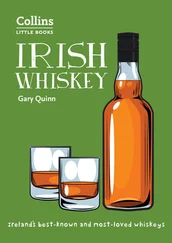“Leo?”
He swam through his own mind, toward her voice, and broke the surface.
“Aaaaand you’re back in the room,” said Mark, from across the table.
Leo laughed at the joke.
“Leo?” Leila asked. “You okay?”
“Yeah, yeah.” And he was. “That’s a real kick in the pants,” he said. Though, coming out of it, he also saw that it wasn’t unlike a good bong hit, or a gust of wind off a river, or going steeply downhill on a bike.
“You like your number?” Leila asked him.
“I do.” It was the phone number of the Riverside Drive place. The fire had gutted the building. Its innards had been rebuilt, its facade remade of cheaper materials. His home was a dermatology clinic now, with a hypnosis-cult thing on the top two floors. Leo had never been in.
“Why does he get only seven digits?” Leila asked Roman.
“He’s got an eight-zero lead-in, I guess. It’s also the thirty-fifth Fibonacci number, though,” said Roman.
“And a Markov number,” said Trip. “I’ve never seen a number as low as that. That’s a lot of white space.”
“Maybe Leo’s just a very…flexible person,” said Constance.
That’s what I am, thought Leo.
F uckin’ Leo, thought Mark. Just sits right down for an eye test like that. Had he not been listening when they said there was no way back? You get only one set of eyes; you should guard them, thought Mark, who would concede, though, that he wasn’t the strictest guardian of his own temple. Leo was doing it for the girl, probably. He had been that way in college also; he wooed with too much ardor. Girls had gotten cheesy dorm-room deliveries of flowers and cupcakes and poems. Had he never learned that the good ones liked to do some of the work themselves? Now that Leo was eye-tested, Mrs. Red Brigades over there was really going to lean in on him, Mark feared.
“Now you, Deveraux,” said Constance, giving a chair a little scrape on the floor to make the point.
He stayed seated, reclined, even. “What if I won’t do it?” he asked her. “Now that I’ve been here, to the Little House in the Satellite-Cloaked Alpine Crater, I mean. How would you mitigate the…liability I represent?” Step Eight: Make Them Say What They Mean.
After a pause, Hazards seemed to concede that the question had fallen to him. “In that event — I mean, if you were threatening to compromise us, or if we couldn’t be certain that you wouldn’t, we would render you unbelievable.”
“Render me unbelievable?” echoed Mark.
“Certain compounds could be gotten into you that would make it so that no one would believe what you were saying,” said Hazards. “Plant-based compounds. Self-limiting. Pretty benign.”
Mark looked at him. The passive voice, the could be gotten into you; the way Hazards had looked straight at him when he’d answered. How would he deal with Trip Hazards and his plant-based compounds? Someone like that was probably always on the lookout for the head-butt. And the run-away? It was just those Dr. Seuss trees and the moonlight out there, a steep ridge and piney mountains beyond that. A twisted ankle, a pack of wolves.
“Just tell me what you want me to do. I don’t need to take that test.”
“No way,” said Constance. Roman shook his head also.
“Why won’t you take it, Mark?” said Leo, unhelpfully. “You should take it.”
“Because I don’t want to be you, ” he said in a raised voice, losing some cool. He didn’t mean just Leo. He meant all of them, and he used his hands to include the whole table. “No offense intended. You can keep your connectivity. I want to be me. Just me.”
“But you are such a shit,” said Constance. “You only want to keep your money, your privilege.”
“I worked for that money,” said Mark.
“Please. That’s not work. That’s cheating. Have you ever really worked?”
What about Grill Ride? Or what about at Harvard, where he’d faced daily the mean fact that he would never have half the money that most of those kids already knew they would have. He had worked like a fucking beaver then, deep in the passages of Widener, to prove that prep school had been a waste of their parents’ money. How about when the financial aid had dwindled, and Mark had to take a leave of absence and work full-time? What friends he had drank their junior years away in Barcelona and Prague while he took a subdignified job as a chiropractic-office manager. Who had had to open the office at a moment’s notice, on a Saturday, to see that the wind chimes were switched on and that there was plenty of oolong tea on the little drinks table? Mark, that’s who.
Never worked hard, indeed. How about the fifteen years of work of keeping a dream alive, of just knowing somewhere deep inside that you are smarter than most people and that there must one day be a chance to leverage this fact? How about the work of holding it all together? The work of making sure your mom gets the best care there is? The work of keeping your story straight? Besides, there is the scrape of luck in everything, from the missed bus, to the dinged chromosome, to the hurtling asteroid.
“If by worked you mean the book you wrote, that smug nonsense about how everyone can be more effective and richer and more self-centered, no one here’s buying it.”
This too stung. “Yeah, I didn’t really write that one. They did. My next book will address some of those complaints, I think. I hope you’ll read it. Well, not my next one, actually. You should skip that one. But the one after that. I’m going to call it Try Again Tomorrow .” He was so proud of the title.
“See, there’s your problem right there,” she said. “Why wouldn’t you call it Try Again Right Now ?”
Shit. It was like a tiny missile landing on division headquarters. She was precisely right. Try Again Tomorrow was an excuse in the guise of exhortation. But Right Now ? Like, Right Now right now?
“You really find it so unbelievable, Mark,” said Roman, “that people could get along and share what’s here? That we could finally see the common good, instead of all of us toiling away to buy ourselves the same stuff? Didn’t you go to first grade? Haven’t you ridden a city bus, or even waited in line for a movie?”
Mark had done all those things. But he hoped to never ride a city bus again, actually. “We might get there, I suppose. But I can’t be sure that you know what the common good is. And I bet you’ve all benefited from the system you say you oppose. You people are clearly top-of-the-heap types. You really want this great redistribution to go down? You ready to toil at the bottom? Mine that mineral they need for cell phones? Cellphonium or whatever?”
“I’m not a top-of-the-heap type,” said Constance. “I’m down here in the thick of it.”
Mark ignored her. “You talk about how it’s going to be like a chore wheel, everyone just stepping up to do his part. You know who else thought highly of the chore wheel? The Khmer Rouge, that’s who. Oh, and Stalin and Mao, and probably some of those crazy African motherfuckers too. Idi Amin and What’s-His-Nuts, the guy who’s not dead yet — Mugabe.”
“You’re just making a lot of noise here, you do realize?” said Constance. “You’re only invested in seeing things not change because of who your bosses are. No one here is going to buy any of your excellence-of-the-individual shit.”
Well, it seemed that Constance Nozzikins had watched at least one of his most popular webinars.
“Look,” Mark said, “you want to redistribute your way to a better world? The distributors always become the assholes. You’ve just got to let everyone scrabble it out, even if some people are always going to end up with more.”
Читать дальше












